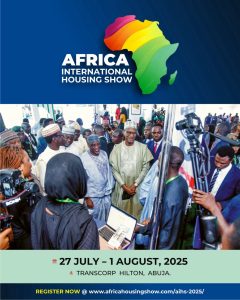Nigeria’s efforts to bridge its significant infrastructure gap received a major lift this week as InfraCredit, the country’s pioneering domestic credit guarantee institution, secured $17.7 million in fresh equity through a strategic listing on the National Association of Securities Dealers Over-The-Counter (NASD OTC) exchange.
The landmark listing, backed by the United Kingdom Government, is expected to catalyze sustainable infrastructure growth and strengthen Nigeria’s ongoing energy transition. The UK’s involvement comes via its Mobilising Institutional Capital Through Listed Product Structures (MOBILIST) initiative, which invested ₦9.5 billion ($6 million) into InfraCredit as part of a broader ₦64 billion ($41 million) listing. This move highlights a clear effort to mobilize domestic institutional capital and direct it toward Nigeria’s critical infrastructure needs.
In a statement released by the British High Commission on Monday, the UK emphasized the importance of strengthening Nigeria’s infrastructure base, especially in the face of a projected $2.3 trillion financing requirement between 2021 and 2043. Given the limitations of local banks in providing long-term funding, InfraCredit has emerged as a key enabler in the sector. The organization provides Naira-denominated credit guarantees that help de-risk infrastructure bonds and enhance their credit quality. This strategy has made it viable for local institutional investors—such as pension funds and insurance companies—to commit funds to long-term projects that were previously considered too risky.
To date, InfraCredit has supported a project pipeline valued at over ₦750 billion ($500 million) using its risk guarantee model. With the latest capital injection, which also includes participation from two Nigerian pension funds, InfraCredit is now positioned to expand its footprint and fund more transformative infrastructure projects nationwide.

The listing on NASD also marks a significant transition for InfraCredit from a private institution to a publicly listed entity, signaling a commitment to transparency, accountability, and long-term sustainability. It is also a stepping stone toward a future listing on the Nigerian Exchange (NGX), a move that aligns with MOBILIST’s broader agenda of promoting investment vehicles that contribute to achieving the United Nations Sustainable Development Goals (SDGs).
Speaking on the development, Jonny Baxter, the British Deputy High Commissioner in Lagos, praised the listing as a milestone in the UK-Nigeria development partnership. He emphasized that InfraCredit’s success illustrates the potential of public markets to mobilize domestic capital at scale. “InfraCredit’s journey shows the strength of long-term partnerships. With MOBILIST’s support, Nigerian investors now have a reliable pathway to fund the capital needs of local infrastructure developers, while contributing to national growth,” he said.
InfraCredit’s CEO, Chinua Azubike, described the listing as a pivotal moment in the institution’s evolution. He reiterated the company’s commitment to deepening Nigeria’s capital markets and unlocking access to long-term, local-currency financing for infrastructure. “This transition into a publicly listed company is not just about growth—it’s about building trust, widening our ownership base, and reinforcing our mission to support sustainable development through infrastructure financing,” Azubike noted.
Founded in 2017 by GuarantCo—a member of the Private Infrastructure Development Group (PIDG)—and the Nigerian Sovereign Investment Authority (NSIA), InfraCredit was created to address the absence of long-term financing solutions in Nigeria’s debt capital markets. Since its inception, it has become a model for similar institutions, such as InfraZamin in Pakistan and Dhamana in Kenya. Its capital base was further strengthened in 2020 when InfraCo Africa, another PIDG company, joined as an investor.
InfraCredit’s growing influence is supported by strong international partnerships, including strategic alliances with British International Investment (BII) and Financial Sector Deepening Africa (FSDA)—both of which are UK-backed organizations committed to advancing development finance across Africa.
As Nigeria seeks to close its infrastructure gap and move toward a more resilient, sustainable economy, InfraCredit’s transformation into a publicly listed entity may represent not only a significant institutional evolution but also a blueprint for mobilizing local capital to solve Africa’s long-term development challenges.



